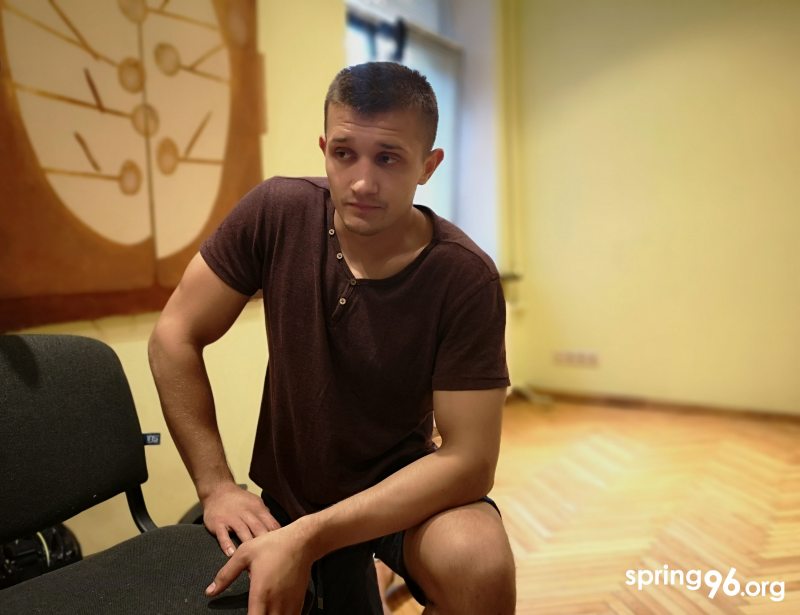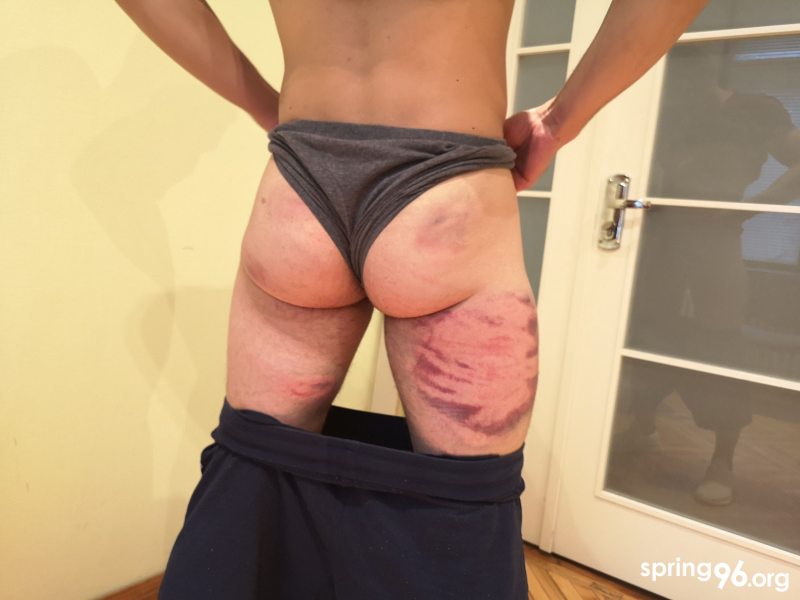"You have thrown Molotovs!" they said and hit us with a Taser." Survivor stories
The Human Rights Center "Viasna” and the World Organization Against Torture (OMCT) launched a campaign to document cases of torture, cruel, inhuman and degrading treatment of protesters on August 9-13. Some testimonies of people who survived torture and violence will be published on our website as evidence of crimes committed by security forces.
23-year-old Ihar Kviatko was detained on August 11 in a taxi. The Minsk resident told Viasna about what happened next. When interviewed, Ihar was unable to sit because of his injuries.
"On 11 August at about 10.30 pm we got into a traffic jam in Serabranka neighborhood. The riot policemen appeared and just pulled us out of the taxi. They put us down facing the ground, started kicking us on our legs and back, and searched the car. They threatened us: ‘You have thrown a Molotov cocktail!’ – and hit us with a Taser.
After that, I was taken to a police van with conscripts. They started to literally kill us, if you will. It was the conscripts who did it.
About 40 people were brought into the police van. Among them was a minor. He was beaten even harder than me. They probably thought that he had thrown a stone at the riot police.
They used gas. They sprayed it so that we could breathe, while they had gas masks on. They just were having fun.
We spent about an hour in the police van and then were taken to the Leninsky police department. When we got out of the van, we were ‘welcomed’ by a column of riot police. We had to run between the lines and they beat us on the way. If you fall, you get beaten even harder.
After that, we were kneeled on the ground outside and waited for two hours for the reports to be filed.
They had us videotaped, we were asked for names and home address. They made an inventory of belongings and asked us to show the phone. If the phone was turned off, we were ordered to turn it on, open the gallery, and let them look at photos and videos.
Then we were taken to the garage, where we stood head against the wall for three hours.
At about 3 am the riot police left and an ordinary police officer appeared. He was without a mask (all riot police had masks) and treated us well: he allowed us to sit down and sleep and took us to the toilet.
But at midday, the riot police returned and began to humiliate us. They would say: 'You were the one throwing the Molotov cocktail! You!'
Around 4 pm on August 11, they loaded us in police vans again. When we were brought to the detention center in Akrescin Street, there was also a similar corridor of riot police through which we had to run – and they beat very hard.
120 of us were placed in a 6 square meter cell. We stood for 24 hours. Toilet? We had three plastic bottles. We used them for the toilet and put them in the corner.
At about 3 am we were finally given a meal: a bucket of patty-cakes and some bread. We had to divide a patty-cake by half. For the first time, they brought water: 12 liters for 120 people. They took groups of 6-8 people from our cell to the toilet. We took the bottles with us and brought back some tap water.
At 5 am they called my last name. I and a dozen more people were taken out of the building. There were three tables. I was brought to a table – there were two reports on it. They just showed me: 'Sign here and here.' If you start reading, they immediately give you a cuff. One guy said that he did not agree with the report and was taken behind the fence. I heard screams. When they brought him back, he signed everything.
After that, we were asked: 'Will you go to the rally this weekend?' This is such moral pressure. You say no. And if you don't say anything, you can get hit.
Then: 'Run, march! Along the fence without touching the grass,' that was the order. Next to the fence, there was a minibus. Riot police came out, put us on the ground, and beat us for a minute or so.
We were released with a warning: 'If you get caught again, you will be beaten even harder.' And one of the officers said: 'If you end up in the detention center in Žodzina, you will be beaten much harder than here, much harder than the convicts.'
When I came out of the gate, a volunteer offered me a ride. I am very grateful to the people who helped us. Otherwise, I would walk for an hour and a half with my legs injured like this.”
More stories of people who survived police violence and torture:
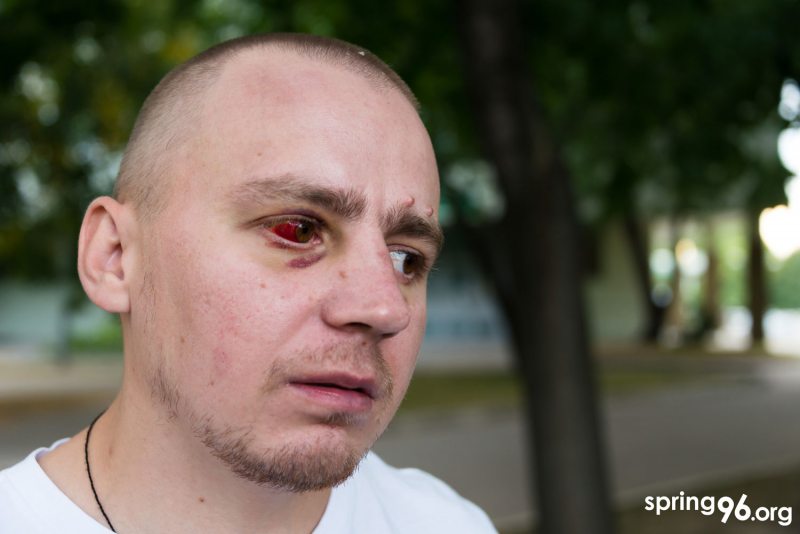
"They started beating me again and said: 'This is a refill for you!'" Survivor stories
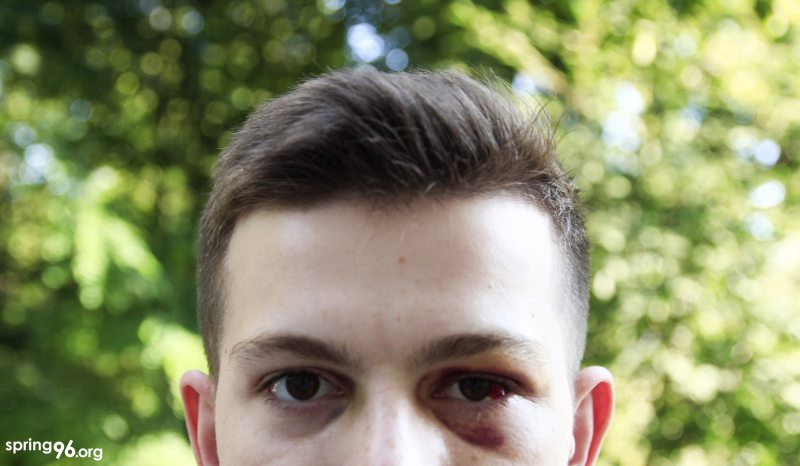
"A paramedic came and started beating people." Survivor stories
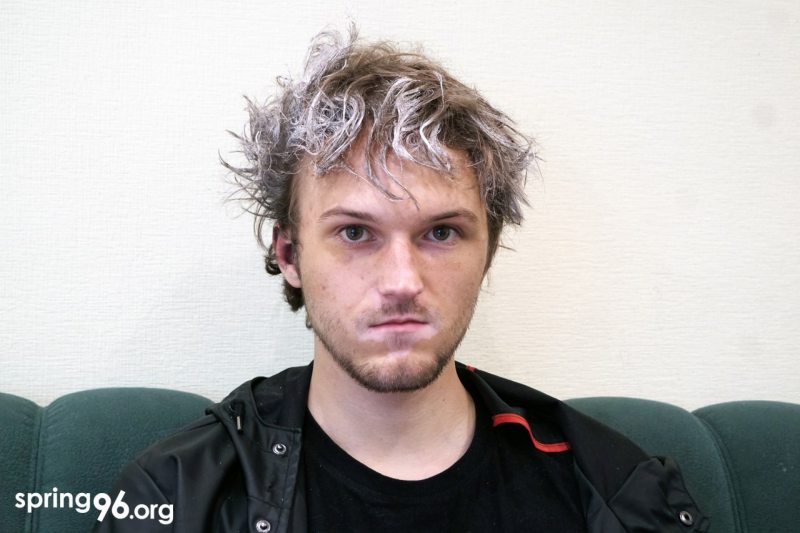
"White paint was poured on my head. It was like a sign to beat me harder." Survivor stories
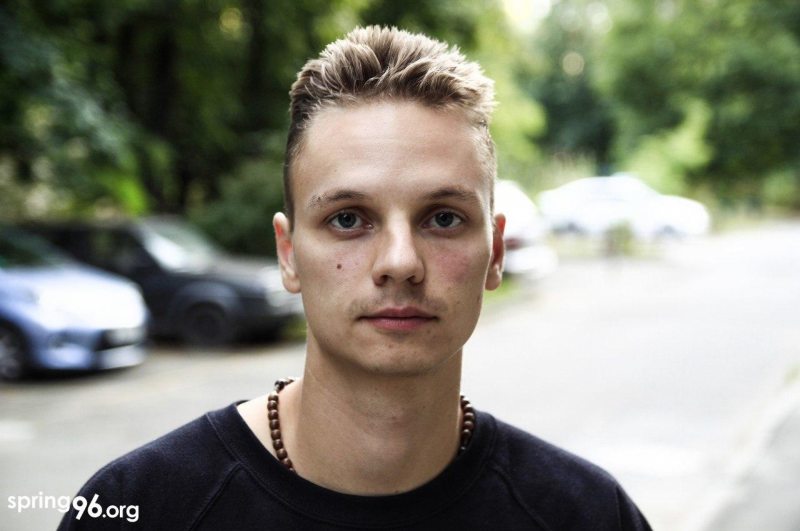
"One of them beats you and the other aims at you with a machine gun." Survivor stories
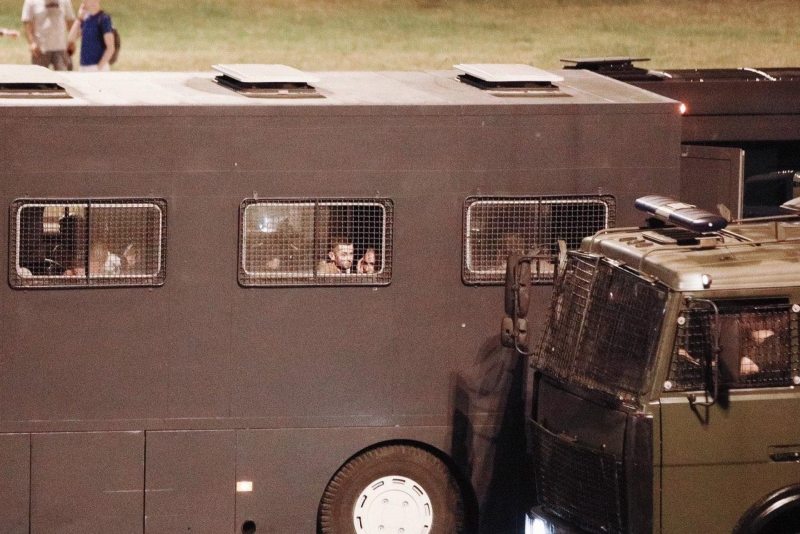
"They took away my bra with a breast prosthesis." Survivor stories
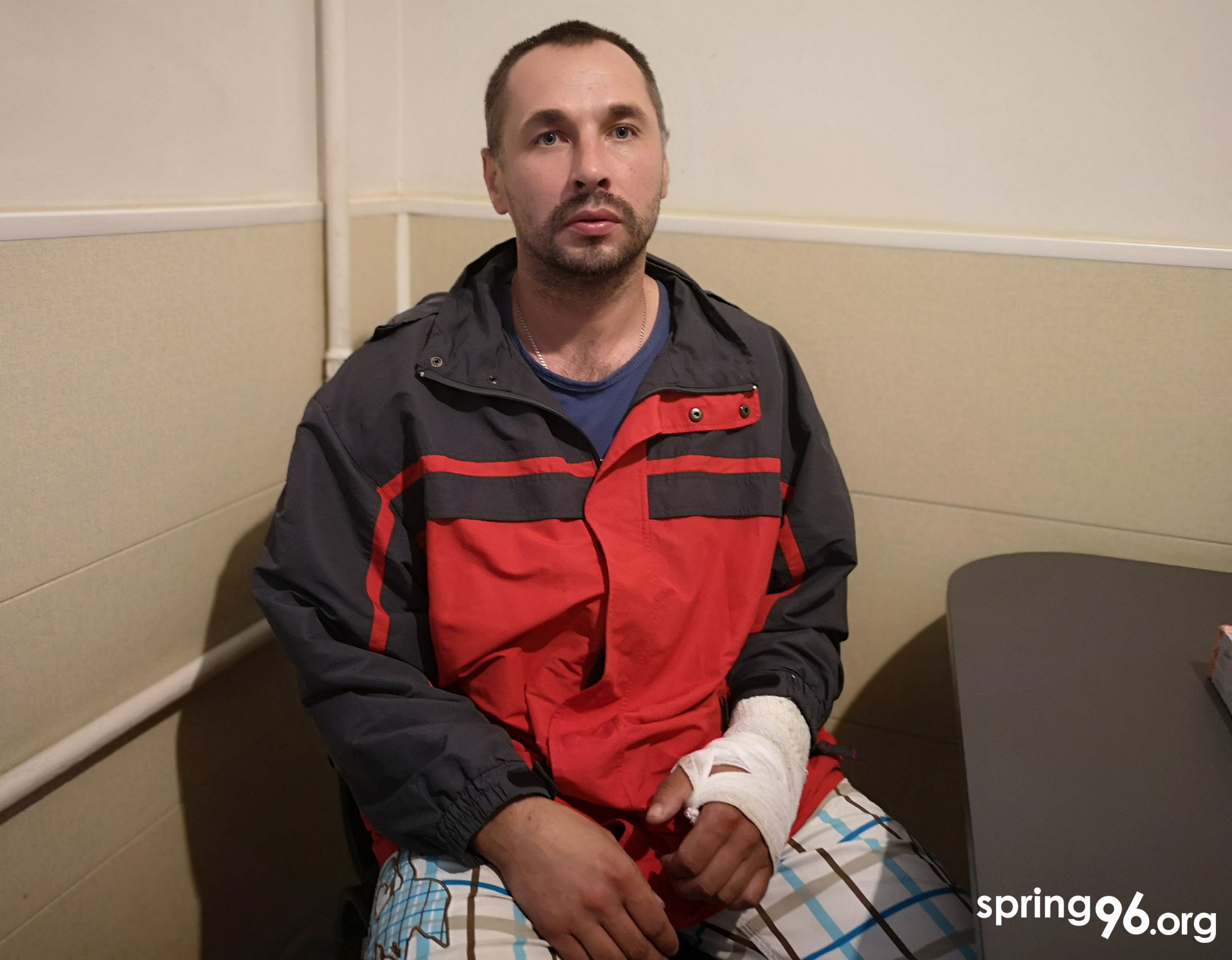
"Road police officers broke my arm during detention." Survivor stories
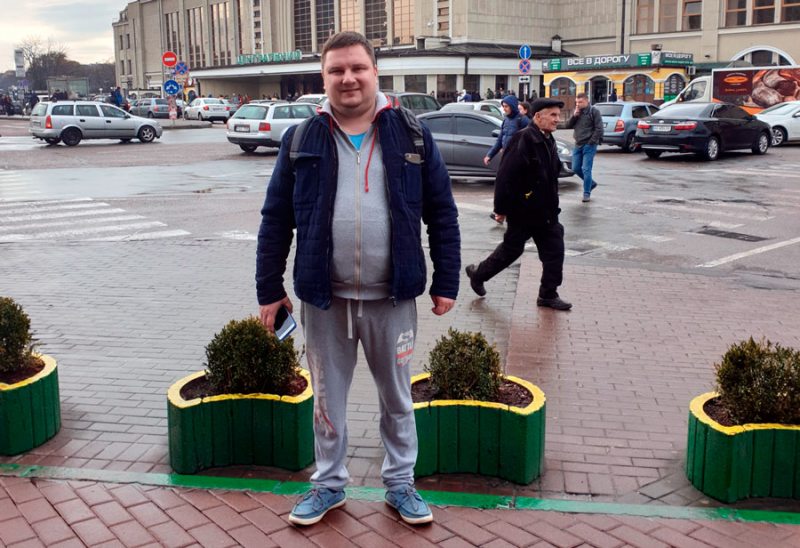
"I was lucky to be a journalist and to have my kidneys thrashed previously." Survivor stories
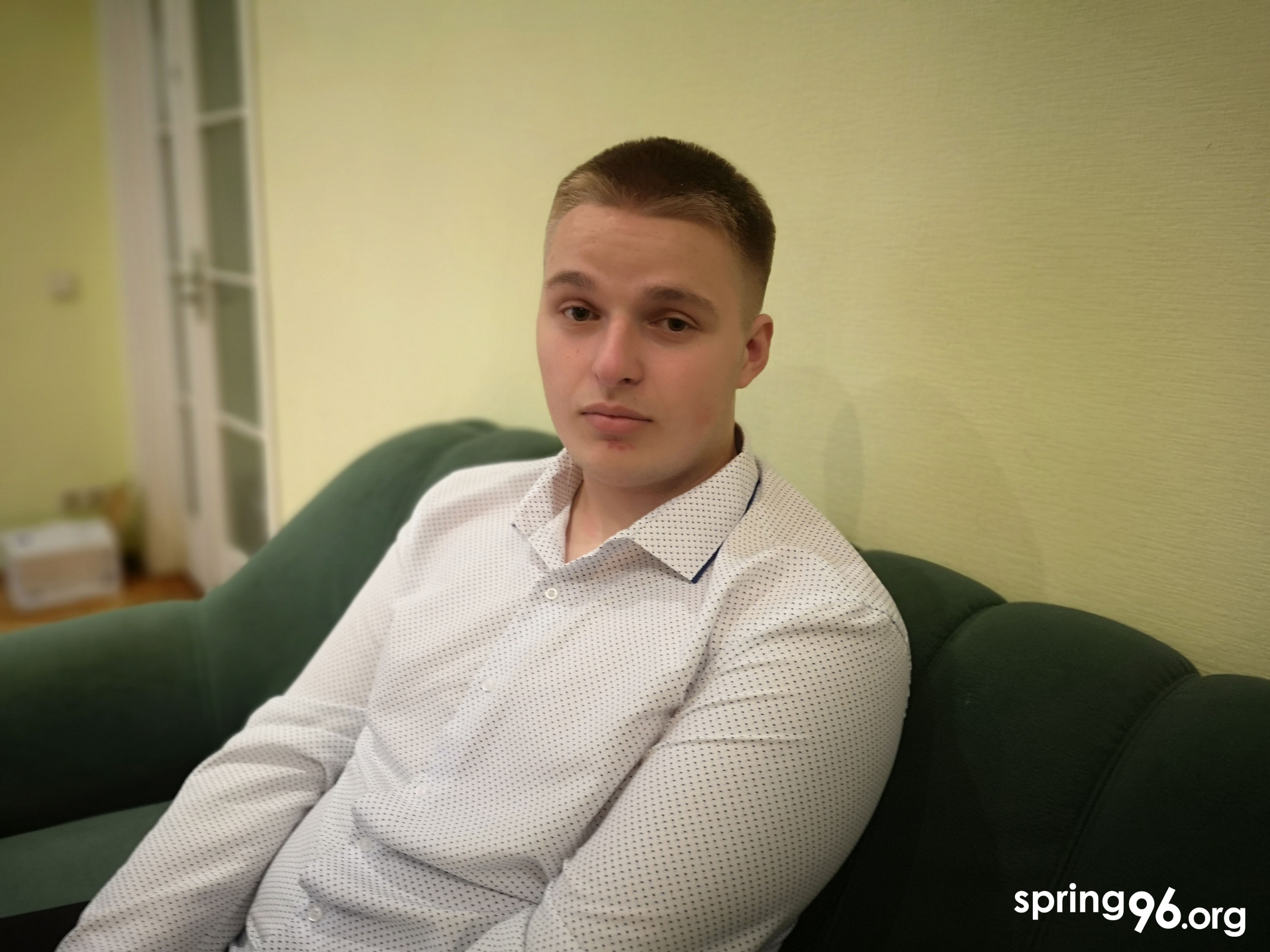
“We will shoot you and you will never be found.” Survivor stories
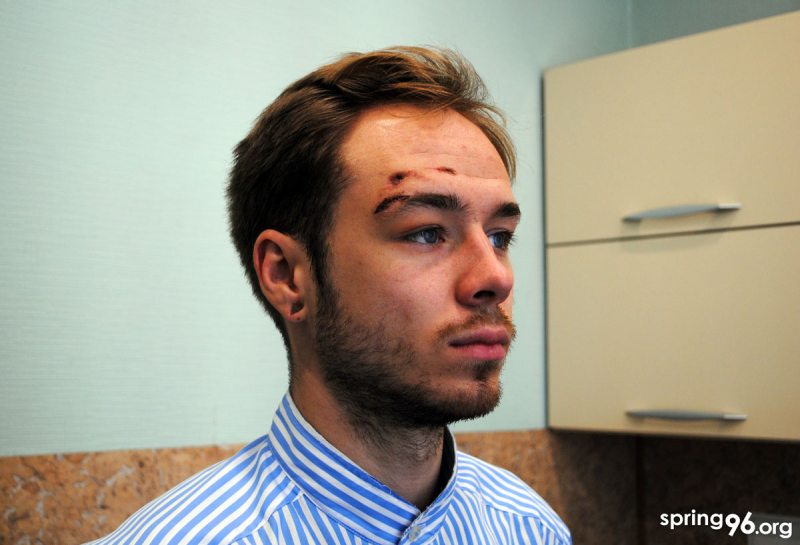
“We were trampled in the police bus.” Survivor stories
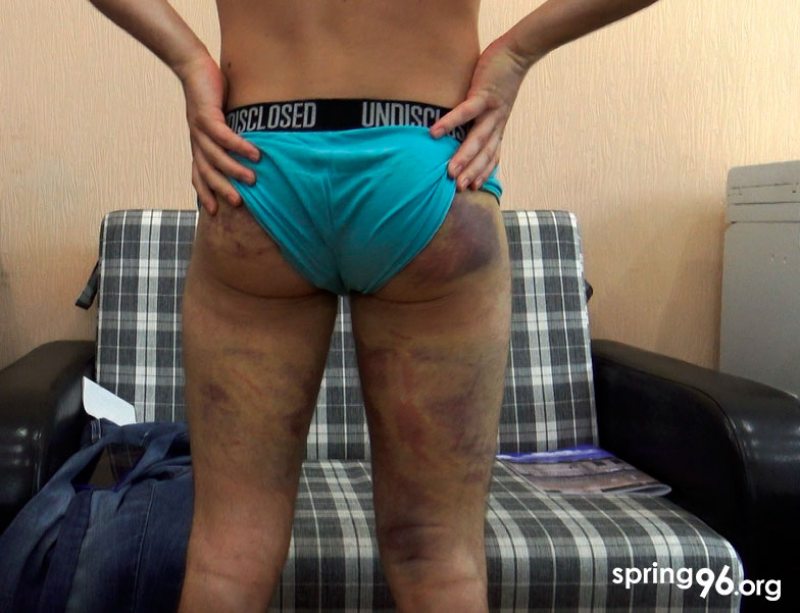
“Now we’ll show you how to s..t your pants." Survivor stories
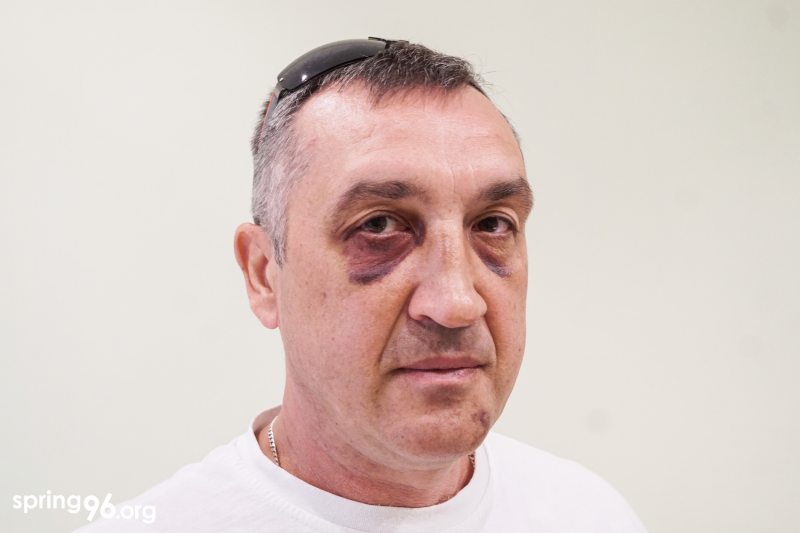
“So you are for Tsikhanouskaya?” Survivor stories
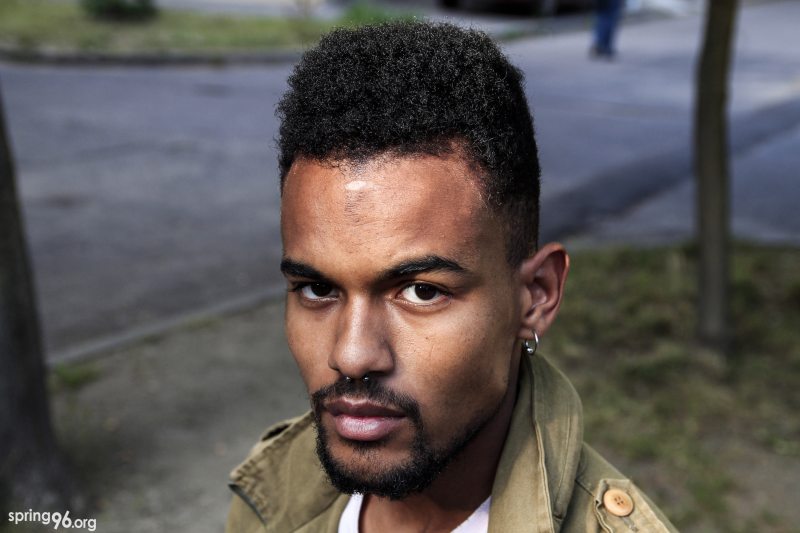
"Officers abused me all the time because I’m black." Survivor stories
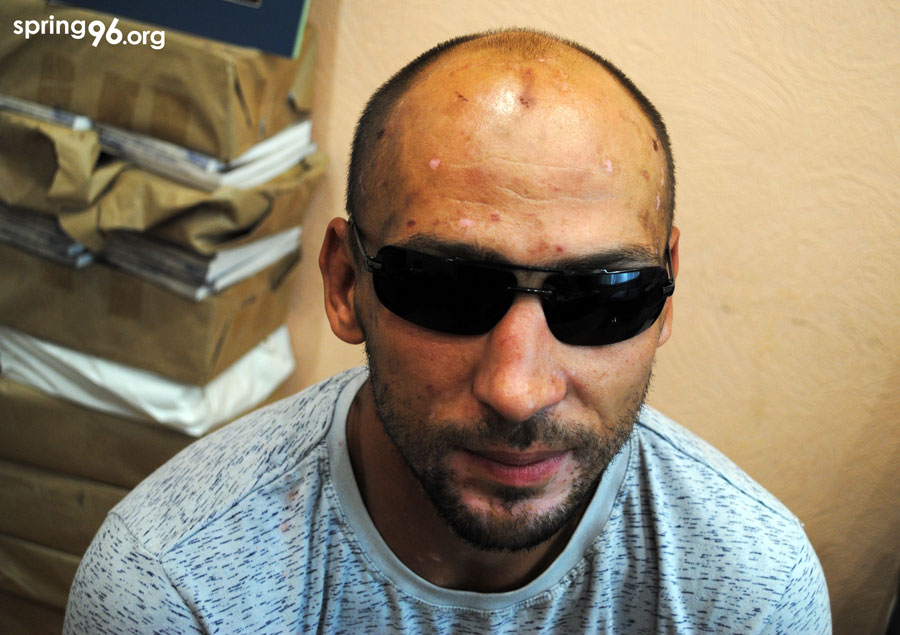
“They kicked me in the head with their police boots.” Survivor stories
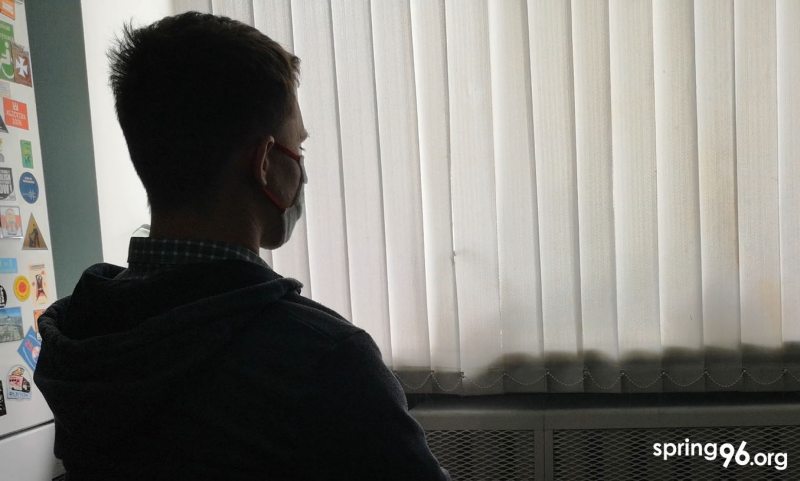
“People were screaming every night.” Survivor stories



